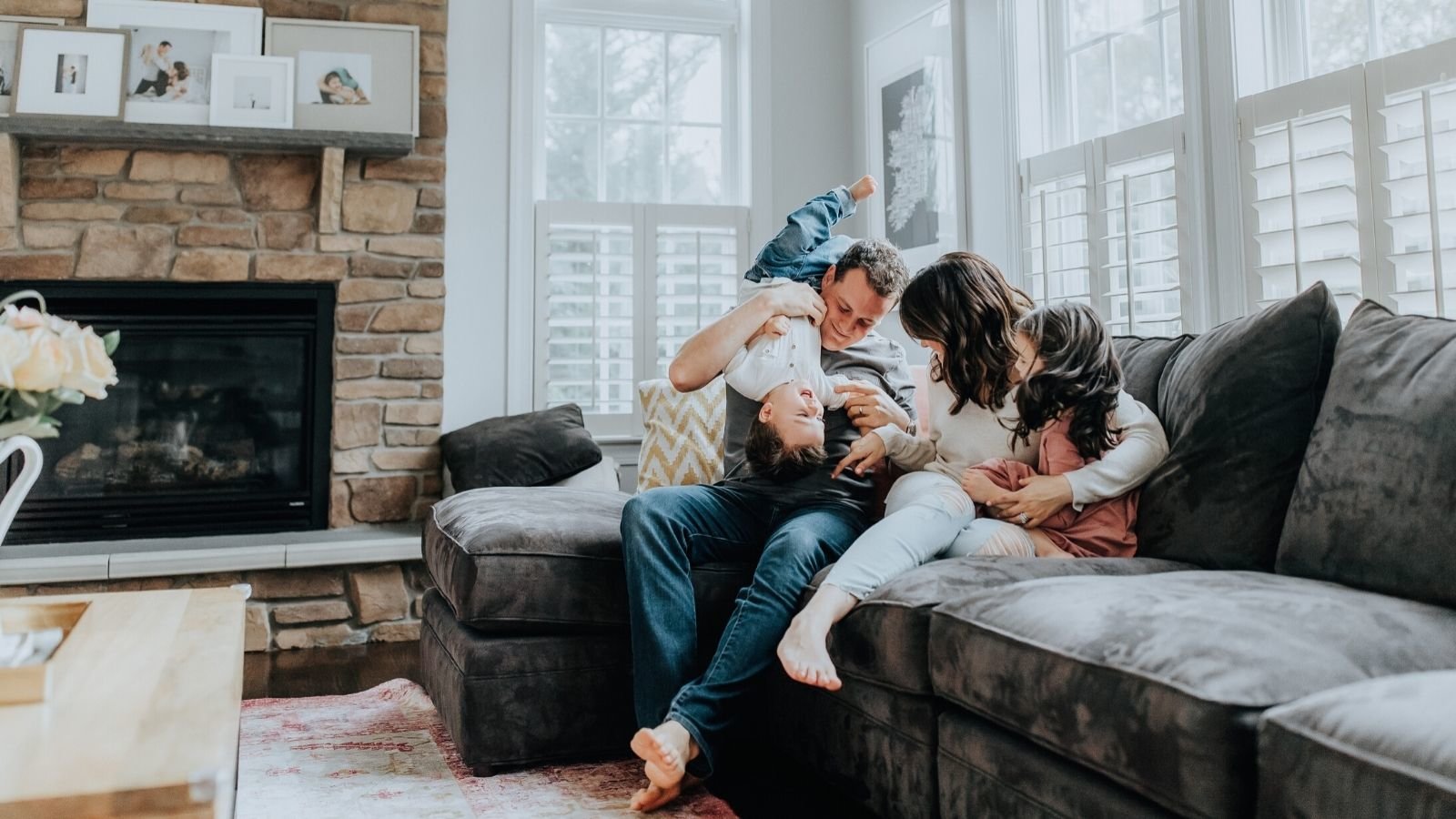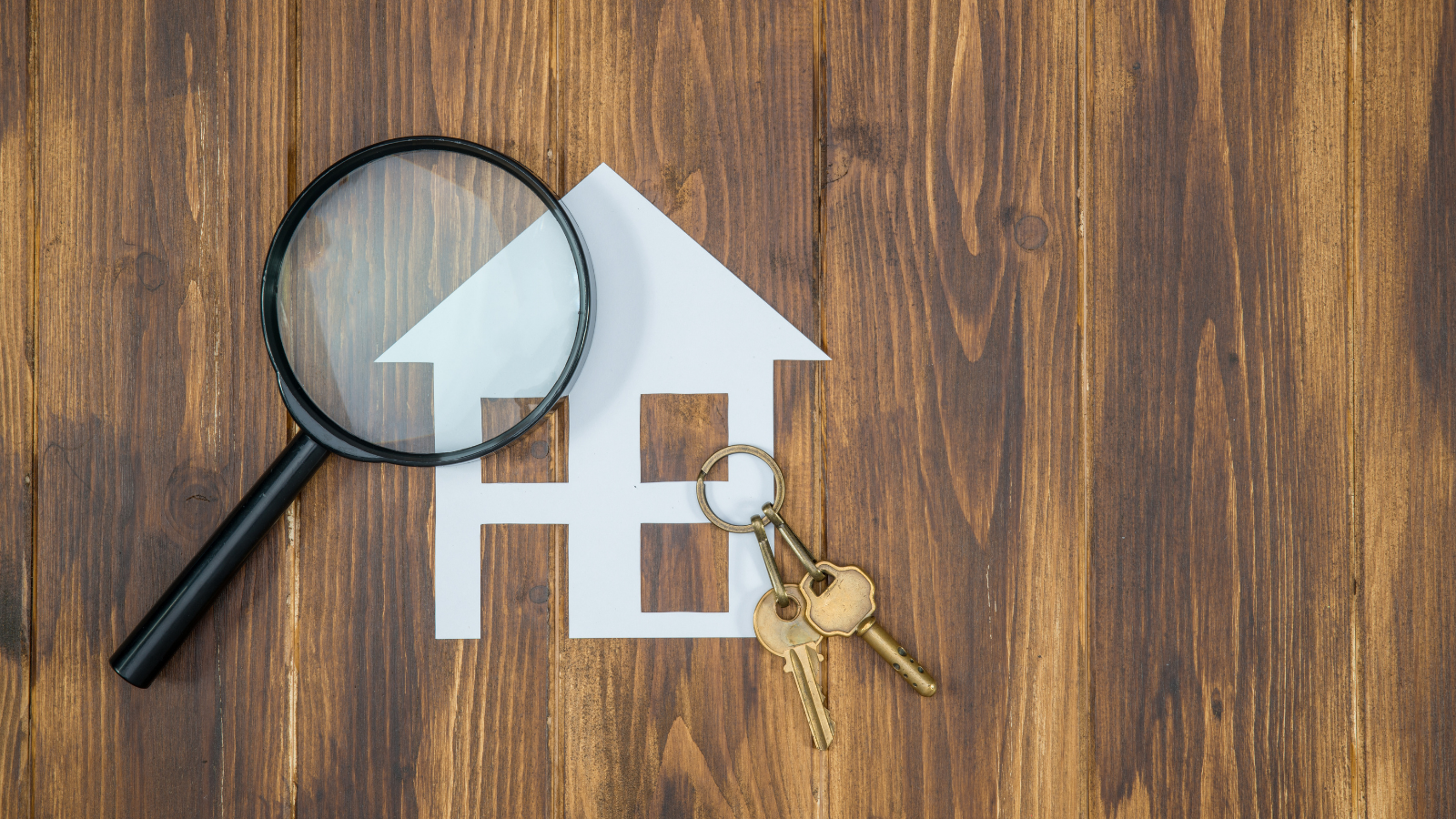Social Links Widget
Click here to edit the Social Media Links settings. This text will not be visible on the front end.
How to Choose “The One”: Your Guide to Finding Your Family’s Perfect Home

Some people may make the mistake of rushing into renting or buying a property, only to realize later on that there’s something that they dislike or is missing. I’m not talking about missing shingles or whether it is up to code or not—a proper home inspection can easily catch that. I am talking about those key features and lifestyle elements you and your family are looking for that take the property from house to home. Those should play just as important of a role in your home search as whether the plumbing has been installed correctly.
Below are my best house hunting tips to ensure you choose a property that you will love.
#1 – Does it Check Your Boxes?
My best advice before you even begin your house hunt is to evaluate your current home. Create a list of items you love and that work well for you and your family. Then, create a list of things you don’t like about it or things you would like to change. These lists will help you decide on your “must haves” and your “want to haves.” and will be the lists you take house hunting with you. The home that checks most, if not all, of your boxes will be high on your potential buy list.
#2 – Renovation Potential
Does the house you like need work? Are you capable of taking on the renovation by contracting it out or adding on some sweat equity? This can be one of the best ways to ensure you will love the home now. Of course, a major renovation means you can make changes to the layout, adding or removing rooms as you desire, but even minor renovations, like changing the countertops or flooring, can help you fall in love and stay in love with a property.

#3 – Evaluate Size & Storage
Size demands can go both ways. Too small, and you will feel like you’re bursting at the seams and will need to upsize sooner than you had planned. Too large, and you will find it hard to make the home feel “homey”—there’s a lot of furniture required to fill a large home and you may become frustrated with the amount of daily maintenance required. And for storage, can you ever have too much storage? (Well, I guess there comes a point where you need to purge those junior kindergarten halloween costumes…)
Your home should be just big enough for your family and have the desired space to store your belongings.
#4 – Investigate the Neighbourhood
If you enjoy talking with your neighbors over the fence, walking for exercise, or meeting at the local coffee shop, see if your new neighbourhood can offer that. Is the home close to the places important to you, like your parents’ house, work, schools, and activities? If it’s not, will it bother you to drive 30 minutes to an hour to and from each day?
#5 – Pay Attention to Your Feelings
Do you get that warm and fuzzy feeling when you walk in the door? Does the home “speak” to you? Does it feel like home? Can you envision your family living there? Have you already begun imagining furniture arrangements?

#6 – Be Realistic
The house you end up with may not be your dream house. It’s imperative that you end up with a house you’re going to be happy living in, but you might also have to adjust your expectations if the home you want isn’t one you can afford. Working with an experienced local REALTOR® will help you determine if your budget will meet your wants and needs. But knowing the difference between the two is key. You may have to pass on some of your wants to have in order to get your needs.
It can be a delicate balance between taking the time to make sure a house is right for you and making sure you get to it before someone else does, especially in a seller’s market. I will ensure you look at all the houses that align with your budget, needs, and wants. Then, together, we will weigh both the practical and emotional factors. Think about the pros and cons of the houses you’re considering but consult your gut as well. Sometimes, when it’s the “the one,” you just know.
The Official Guide to House Hunting You Didn’t Know You Needed

There’s more to house-hunting than just going to a few open houses, although getting to know the market in advance is not a bad idea. Before you become a serious “House Hunter,” there are some important things to consider. Whether this is your first house or you have just sold an existing home and now need to find your next home, this will be a helpful guide to ensure you’re ready. The following tips will make house hunting a smooth process. Well…as smooth as possible.
Team Building: Finding Your Real Estate Help
Now’s the time to start assembling your real estate team. These are the professionals whose expert knowledge will help focus your house hunt, seal the deal, and get you the keys to your first home.
It’s important to find the right REALTOR® for you. After all, this is a huge decision and having a real estate agent on your team will be a big help. The right REALTOR® will get to know both you personally and professionally, so they fully understand not only your financial goals, but also your plans and how you intend to live in the home.
A Mortgage Specialist works for a lending institution, while an Independent Mortgage Broker is unaffiliated with any one lender. In either case, as a key member of your team, they will walk you through your different mortgage options. Ultimately, it is your mortgage broker or specialist who will determine how much home you can afford. They will provide you with a pre-approval that you can take to your REALTOR® to start your house hunting off with realistic expectations.
Real Estate Lawyers will review the purchase agreement, help negotiate modifications, prepare closing documents, do crucial research on the property and liens, and fact-check legal descriptions of the building and lot. They will also collect, hold, and disburse fees associated with buying a property. Therefore, they are a crucial part of your Team.
Lastly, a good Home Inspector can save you money and stress by identifying problems in a property before you buy. These issues may have you revising your offer or rescinding it altogether.

Before the Hunt Begins
Finding the right home for your budget can be a process. Your REALTOR® will utilize their understanding of your specific situation to help you search for homes that best fit your lifestyle. They’ll save you time by filtering through listings that do not meet your desired criteria.
Some key items to discuss with your Real Estate Agent before you begin hunting:
Size & Space – consider spatial needs now and in three to five years’ time
Lifestyle – consider indoor and outdoor maintenance and upkeep
Community – consider school catchment areas, proximity to amenities etc.
Transportation – consider parking, proximity to public transit, walk-ability, bike-friendliness and travel time to your work
Recreation – consider distance to trails, parks, and rec centres
Start Hunting
Ready to kick off your house hunt? Let your team know since you need to be ready to pounce when the right house comes up. Your REALTOR® will provide information about the markets you’re interested in and help you compare homes and neighbourhoods. They can also provide access to exclusive listing information, preview properties to ensure you’re only shown homes that meet your needs and budget, and make appointments to walk you through homes that interest you.

Buy a Home
Once you’ve found the right home it’s time to let your team take over.
Your REALTOR® moves from Counselor / Analyst / Shopping Assistant to the Negotiator / Administrator, ensuring your transaction goes as smoothly as possible. They will bring together all information, using their expertise, to compile a market analysis report to assist you in deciding on a competitive purchase price. They will negotiate on your behalf to get you the best possible deal.
Your Home Inspector will then provide you with a Home Inspection Report. The report will assist you and your real estate agent in deciding if the home is sound and the purchase price is appropriate.
Your Mortgage Specialist / Broker will prepare your loan documents.
Your Real Estate Lawyer will now begin the legal process, facilitating the transaction.
Whew! That’s a lot to throw at you. But if you follow this guide to house hunting, you will have a great start on your journey to finding your dream home. You’ll find the house you’ve always dreamed of and avoid a purchase you’ll regret. And soon it will be possession day and you can move in!
The Finances

Mortgage Pre-Approval
The pre-approval step is an important one. After all, it will dictate how much you can spend and will allow you to determine how much you want to spend. Those sometimes are two different numbers. By getting this step out of the way, you are able to make educated decisions based on your financial situation.
Deposit
Once you have decided that you want to make an offer on a property, a deposit is needed to hold your interest in the home. Typically a $5,000-$10,000 deposit is required and the cheque is needed at the time the offer is made. The deposit cheque is deposited once the offer has been accepted and is held in the Century 21 Fusion trust account. This money also counts towards your downpayment and will be forwarded to the lawyers closer to possession day. If you decide not to remove conditions on the home during the conditional period, your deposit will be returned or can be held on to and applied to the next property you find.
Shopping Around
I usually recommend going to talk to your bank and also a mortgage broker to see what the best interest rate is they have to offer you and what other incentives or programs they might have that fit your needs. Remember that a 0.5% difference in interest rates means that for every $100,000 of mortgage amount, you are paying an extra $26 a month. Do the math and this equates to over $7,800 per $100,000 extra in interest costs over the length of the mortgage. Interest rates are important. Also noteworthy – don’t allow too many lenders to pull your credit score. Every time it’s pulled, your credit rating is affected negatively.
Down Payment
A typical down payment for first time buyer’s is 5% of the purchase price. Ensure you have enough money saved ahead of time so you can proceed with finding a home that’s right for you. If you want to avoid paying CMHC insurance fees (which can be substantial), have at least 20% saved up.
RRSP’s
The Government of Canada has a program where qualifying first time buyers can withdraw their RRSP’s and use that money towards their downpayment. It’s called the Home Buyer’s Plan and information on the program can be found here.
Calculating
Use the mortgage calculator link below to figure out different scenarios based on differing purchase prices. You can find out how much of a downpayment is required and what your payment will be along with details on a payment schedule, and you can add in any other costs that you may have. Using an affordability calculator online is a good way to help you work backwards and will calculate a purchase price you are comfortable with based on all other criteria imputed. Click here to access the Mortgage Calculator.
Costs Associated With Your Purchase
Buying a home can be overwhelming, especially when large amounts of money are involved. Here’s what you can expect with costs associated with your purchase.
Inspections
If you’ve decided to hire a home inspector, it will cost you around $400. I can arrange any other inspections as well and depending on what they are, the costs will vary and all will be your responsibility to cover.
Real Estate Fees
As a buyer, you don’t pay for my services. My commissions get paid through the seller of the house you’ve chosen. Once you decide to sell your home, you will then be responsible to pay for both sides of the commission.
Legal
Lawyer fees can vary but here’s what you can expect in fees for a typical purchase:
$800-$1000 + GST + PST for lawyer fees
+ $3/$1,000 of your purchase price for the land titles transfer
+$150 for mortgage registration
+ ~$150 for misc expenses like tax search, courier charges, postage, photocopying, etc.
If you would like a more accurate total, please contact your lawyer and they can let you know a closer approximation of what your total fees will be.
Surveyor’s
A surveyor’s certificate is a piece of paper that shows the outline of your home and any outbuildings (usually a garage) that are within the property lines. It will have dimensions to the buildings and also the lot size with the legal description. Often the seller will have a current surveyor’s certificate available and it gets handed down to the next owner. If it’s not available, or the seller never had one to begin with, you can purchase title insurance for your property. The lawyer requires either one and will make arrangements in ordering one if a certificate is not available.
Taxes
Often the seller pays their property taxes monthly to the City. If your possession date doesn’t fall on the first of a month or if the seller pays their taxes annually instead, there will be an adjustment that will need to be made. For example, if your possession is the 15th and the seller has paid their taxes for that month, you will be responsible in reimbursing them for 1/2 of the month that had already been paid. The lawyer will adjust the amount owing and charge you for any difference.
Hook Ups
If you are setting up new utility accounts, often the service providers will charge you a hook up fee. These will vary for the provider.
Movers
Hiring movers or any other moving expenses you might incur are also something to make note of so you don’t end up with any surprises.
Repairs
If there are repairs that are needed to be done shortly after moving in, plan for that expense as well. Often those things get added to the to do list and never quite get done until you’re ready to sell.
Knowing what the costs will be upfront will make the entire process less stressful and gives you a better idea so that you can be prepared.

 Facebook
Facebook
 X
X
 Pinterest
Pinterest
 Copy Link
Copy Link